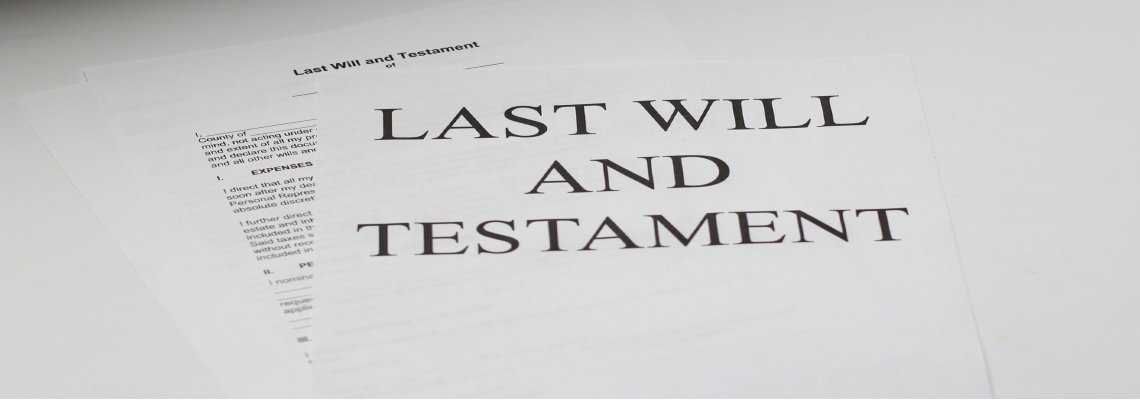
WHEN CAN YOU CONTEST
A LOVED ONE'S ESTATE?
According to a recent TD Wealth survey, nearly 46 percent of respondents regarded family conflict as the biggest threat to estate planning. Improper communications and unrealistic expectations are among the causes of issues and tensions around inheritance. When close family members disagree over the validity or terms of a will, trust, or estate plan, they may contest it.
Attorney David Schwartz is committed to providing strong representation to family members who wish to contest their loved one's last will and testament. As your legal counsel, Mr. Schwartz will help you understand your options and offer you the experienced legal counsel and advocacy you need. The Law Offices of David H. Schwartz, INC. is proud to serve clients across San Francisco, San Jose, Santa Clara, and the San Francisco Bay Area of California.
Who Can Contest a Will?
Not everyone can file a contested will lawsuit. Under California law, you must possess "standing" (or legal right) to contest a will. Only an "interested person," that is an individual who stands to lose or benefit something from the lawsuit, has standing in the state. As such, will contests are generally limited to:
An heir of the deceased, such as the spouse, son, daughter, or parent
A beneficiary under a previous version of the will
Creditors of the estate
Individuals who fall outside these perimeters may not contest the estate.
What Are the Grounds for Contesting a Will in California?
A will cannot be contested on the basis of dissatisfaction or because you are upset that you didn't get what you were expecting. Valid grounds for contesting a will include:
Incapacity
A will can be contested if it was created when the testator, or person whose will it is, was incapacitated or was suffering from cognitive impairment such as dementia or Alzheimer's. Under these circumstances, it can be argued that the person was not capable of understanding what he or she was doing at the time the will was executed.
Coercion
Undue influence or coercion in estate planning occurs when a person tries to manipulate or exert pressure on the testator thus, making them act against their wishes to benefit the influencer. A will may be considered void due to undue influence or coercion.
Fraud
You may contest a loved one's will if you suspect trust fraud or the person's handwriting was doctored or forged.
Invalid Will
A will might be invalid if it was executed incorrectly. For example, if the will wasn't signed before two witnesses, neither of whom are named in the will itself it may be considered invalid and may be contested.
What Is the Process for Contesting a Will in California?
Contesting a will in California involves the following process:
File an Objection
When a will is contested, the contestant shall file an objection to the probate of the will with the California court.
Summons Issued
A summons shall be issued and served on the required party with a copy of the objection. A notice of hearing of a petition for decedent's estate administration may also be served.
Summons Response
The person who received the summons will have 30 days to respond to the contest. Failure to respond in a timely manner may cause the case to proceed to petition or trial.
Going to Trial
At the trial, the will proponents will present proof of due execution, while the contestants will present proof of lack of testamentary intent or capacity, duress, fraud, undue influence, mistake, or revocation. The California court will try to determine any contested issue of fact which affects the validity of the will.
Rendering Judgment
The court will examine the presented evidence and witnesses and make appropriate orders on whether to admit the will to probate or reject it.
How the Law Offices of David H. Schwartz, INC. Can Help
Unfortunately, there are people who will go to any length to manipulate others for their own personal financial gain. If you believe that a loved one's will is not valid, or if you suspect undue influence, coercion, or fraud, you may have valid grounds to contest your loved one’s estate. Retaining an experienced California will and estate contest attorney immediately is crucial for proper guidance and to protect your rights.
Attorney David Schwartz has been representing clients in complex business, probate, and estate litigation, including wills contests claims, for more than 40 years. As your legal counsel, Mr. Schwartz will review your case and conduct a detailed investigation. He will offer you the experienced legal guidance you need and fight vigorously to protect what is yours.
Conversely, if you were accused of manipulating a will, trust, or estate planning document, Attorney David Schwartz will refute the false claims against you and attempt to establish the validity of the will. With Mr. Schwartz on your side, you can anticipate a favorable outcome in your will contest lawsuit.
Call the Law Offices of David H. Schwartz, INC. today to schedule a one-on-one case evaluation with an experienced California will and estate contest attorney. Attorney David H. Schwartz can work diligently to protect your rights and address your concerns. Mr. Schwartz proudly represents clients throughout San Francisco, San Jose, Santa Clara, and the San Francisco Bay Area of California.
